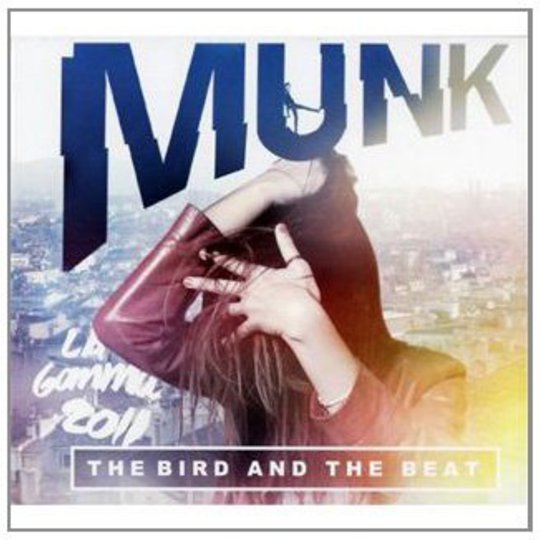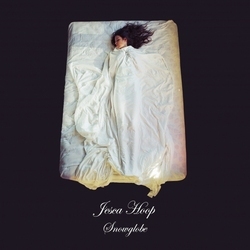Delicate readers who believe that a writer must be familiar with an artist’s entire back catalogue to be in a position to evaluate said artist’s new product are advised at this point to go and shine up their train sets. My only previous encounter with the work of Mathias Modica, aka Munk, was his 2004 single ‘Kick Out The Chairs’, a heads-down, bass’n’drums driven four chords and four minutes of punk rock disco not unlike the early B52s, with guest vocalists James Murphy and Nancy Whang providing that all-important Mark’n’Brix edge. It’s a wonderful record. It rocks. It also has nothing except its creator in common with The Bird and the Beat. This disjunction, along with the existence of more than one MySpace dedicated to Munk, initially led me to the plausible conclusion that that must be more than one Munk.
Leaving aside questions about the persistence of identity over time unsuited to the confines of a 500-word record review – in what sense, if any, can one be said to be 'the same' person one was seven years ago, you know the kind of thing – it turns out I was wrong, as less delicate readers will have deduced. Same Munk, different day. The premise of The Bird and the Beat is that Modica invites a bunch – a bevy, even – of female vocalists to front his tracks and releases the results as an album. Hence the, um, title (cut Modica some slack as a non-native English speaker here and allow him the half-decent pun while turning a blind eye to the faintly derogatory Seventies sitcom overtones of 'bird'). Given 'Kick Out The Chairs', I was hoping for… I dunno, Kathleen Hanna or her out of Life Without Buildings or someone… but (with perfunctory apologies to the vocalists and anybody whose train set was already sparkly clean) apart from Lou Hayter (New Young Pony Club’s keyboard player) and Clara Cometti (from Koko Von Napoo, by whom I have a 7-inch somewhere) I’d no idea previously who any of these people are, over time or otherwise. This of course wouldn’t matter in the slightest if more of them had salient features to flaunt. Cometti’s my favourite singer on the record, along with whichever of – severe cluster-pun warning – Pollyester, E.D. Cold and Missy Chiarriot takes the lead on ‘Kitchen Call’ (it’s not clear from the credits). But overall there’s not an awful lot of individuality on display here.
Same goes for the music, really. It borrows from an impressive variety of sources in the longstanding non-genre glibly reducible to 'dance music for listening to'. There’s an inevitable debt to Daft Punk and their progeny, yer Justices and Digitalismes and so forth, although this music is a lot less like being on drugs, but also a mutation upon the theme of the ‘Magnificent Seven’ and ‘White Lines’ (sorry, Liquid Liquid) basslines that underpinned the sound of early-eighties New York (‘Mira / Excuse Me’), an unlikely echo of LFO in ‘Mis Labios’ (not rude, I checked), Italian House piano (‘Full Moon’) and bits that hint at Anglo-eccentric one-offs like Lemon Jelly and Playgroup. But in the end it’s hard to work out just who Mathias is being tonight, Matthew. The problem for anybody trying to do this kind of thing in the current Year Of Our Lord is that Crystal Castles have not only upped the ante but turned the ante inside-out, upside-down and into a unicorn. In fact, if you squint hard enough for long enough at ‘Keep My Secret’, using your mental MIDI to transmute all those base sounds to hotwired Nintendo gold and to gently increase the likelihood of the singer arbitrarily deciding to punch you in the face – you’ll need Pro-Tools for this – then you’ve pretty much invented Crystal Castles. Except, obviously, you haven’t.
-
4Chris Trout's Score






















